Afficher les éléments par tag : Europe
‘Saint Schuman’, l’assomption ou l’obsolescence de l’Europe chrétienne?
La reconnaissance des « vertus héroïques » de Robert Schuman est annoncée comme imminente, une étape dans son chemin vers la béatification – laquelle requiert la validation d’un premier miracle par le Vatican, voire d’un second pour devenir ‘saint’. Cet épisode ravive le débat sur la place de la religion dans la culture politique des « Pères Fondateurs » de l’intégration européenne, mais aussi sur la résurgence régulière de cette mémoire controversée comme champ de bataille autour d’une « Europe chrétienne ».
Informations supplémentaires
- Auteur François Foret
Les Juifs en Europe au tournant du XXIe siècle : évolutions et tendances démographiques
Deux éminents démographes, Sergio DellaPergola et Daniel Staetsky, viennent de publier sous l’égide de l’Institute for Jewish Policy Research (JPR) une étude des plus intéressantes : Jews in Europe at the turn of the Millenium. Population trends and estimates. L’étude porte sur les tendances démographiques actuelles de la population juive en Europe. Les données statistiques proposées incluent ici, dans « toute l’Europe », Chypre (comme pays membre de l’UE) et la Turquie (une bonne majorité de sa population juive vit en effet dans la partie européenne du pays), ainsi que toute la population juive de Russie (y compris au delà de l’Oural). Mais les analyses sont aussi différenciées selon les régions, distinguant les 27 pays de l’Union européenne (UE), le Royaume Uni, les pays de l’ancienne Union soviétique, les Pays baltes, ainsi que les pays nordiques. Les données de nombreuses sources sont utilisées et synthétisées ici, variant selon ce qu’offre chaque pays (recensement formel ou pas), ainsi que les registres des organisations juives et des études de chercheurs, notamment celle sur l’antisémitisme menée en 2018 par l’Agence européenne pour les Droits fondamentaux (enquête en ligne, FRA 2018).
Informations supplémentaires
- Auteur Martine Cohen
Religion and Secularism in the European Union
In this new and unprecedented report on religion and secularism in the European Union, the Observatory of Religions and Secularism (ORELA) examines major concerns for the EU, such as secularization, the way EU institutions and European countries cope with diversity and pluralism, State and religion cooperation, religion at school, ethical issues and societal debates, freedom of religion, religion-based campaigns… Since 2013, ORELA has published annual reports on religion and secularism in Belgium. It offers online analyses concerning religions and beliefs and Church-State relations, written by experts from the CIERL and various European universities or research institutes, as well as a daily press review on religion and beliefs, covering Europe and beyond. Thanks to a network of experts in the 28 EU member States, ORELA also provides a summary of every national situation, and now a comprehensive and transnational report on religion in the EU.
Religion and Secularism in the European Union
The Observatory of Religions and Secularism (ORELA), hosted by the Université libre de Bruxelles, is proud to launch its first report on religion and secularism in the European Union. In this new and unprecedented report, ORELA examines major concerns for the EU, such as secularization, the way EU institutions and European countries cope with diversity and pluralism, State and religion cooperation, religion at school, ethical issues and societal debates, freedom of religion, religion-based campaigns…
Religion and beliefs: fundamental rights guaranteed by the ECHR and EU law
Freedom of religion, equality and non-discrimination based on religion or belief are fundamental rights firmly enshrined in the European Convention for the Protection of Human Rights and Fundamental Freedoms adopted by the Council of Europe in 1950. The European Court of Human Rights in Strasbourg has progressively built a strong case-law in defence of those principles. The European Union has drawn heavily on the Council of Europe in its endeavour to promote fundamental rights, which it has done most notably in adopting binding anti-discrimination directives; control over the respect of such directives by legislation enacted by national states can be exerted by the Court of Strasbourg, given the relative passivity of the Court of Justice of the European Union so far. Gabriele Caceres (ULB) has summed up these major issues in a brand new ORELA report entitled: "Religion and beliefs: fundamental rights guaranteed by the ECHR and EU law".
Religion and beliefs: fundamental rights guaranteed by the ECHR and EU law
Freedom of religion, equality and non-discrimination based on religion or belief are fundamental rights firmly enshrined in the European Convention for the Protection of Human Rights and Fundamental Freedoms adopted by the Council of Europe in 1950. The European Court of Human Rights in Strasbourg has progressively built a strong case-law in defence of those principles. The European Union has drawn heavily on the Council of Europe in its endeavour to promote fundamental rights, which it has done most notably in adopting binding anti-discrimination directives; control over the respect of such directives by legislation enacted by national states can be exerted by the Court of Strasbourg, given the relative passivity of the Court of Justice of the European Union so far.
Informations supplémentaires
- Auteur Gabrielle Caceres
Mapping religion at the European Parliament: some findings
The interactions between religion and politics in the European integration process are the focus of increasing attention in political and academic debates. However, the body of research that has been developing for several years relates mainly to the representation of religious interests at the European Commission. The influence of religious actors and networks within the European Parliament give rise to many suppositions, ambitions or fears, but there are few empirical data available. To fill the gap has been the purpose of the international research project RelEP (Religion at the European Parliament) associating researchers from nine universities in Europe and beyond — findings of the RelEP project are presented in Religion and politics in the European Union, The Secular Canopy, Cambridge, 2014. Studying the normative preferences of European legislators reveals the conditions in which religion exerts an influence.
Informations supplémentaires
- Auteur François Foret
Le débat européen sur la circoncision
ORELA s’était fait l’écho des prémisses du débat européen sur la circoncision, et ce dès la publication de l’arrêt du tribunal de Grande Instance de Cologne, en juin 2012, qui statuait que « le corps d’une enfant était modifié durablement et de manière irréparable par la circoncision », une modification « contraire à l’intérêt de l’enfant, qui doit décider plus tard par lui-même de son appartenance religieuse ». Cet arrêt, on s’en souvient, avait créé une situation jurisprudentielle inédite en Allemagne, interdisant alors de facto toute intervention de ce type en offrant pour la première fois une base légale à toute appréciation en la matière.
Informations supplémentaires
- Auteur Jean Philippe Schreiber
Anti-Choice Religious Groups and European Institutions: A Reframing of Language
Numerous radical religious groups are active at the European level where they attempt to influence political leaders on issues such as Sexual and Reproductive Health and Rights. Those who refuse their hard-line agendas refer to these organisations, which usually call themselves “pro-life”, as “anti-choice”. There has been a recent change in the way these “anti-choice” organisations express their views on ethical topics: a previous focus on emotions has given way to an increasingly ‘rational’ message. The new conservatives have appropriated values related to democracy and human rights to find a new means of building a sense of legitimacy for their discourse.
Informations supplémentaires
- Auteur Emilie Brébant
Pour un dialogue interconvictionnel au niveau européen : l’action du G3i
Le G3i est un groupe de réflexion et de pression international qui s’engage pour le dialogue interculturel et interconvictionnel en Europe. Les associations qui le composent sont issues des marges de l’Église catholique et des autres religions instituées, ainsi que de la nébuleuse des mouvements non confessionnels. Ce qui les rassemble, c’est la volonté de se rencontrer et d’échanger dans le respect et la reconnaissance mutuelle, loin des discours officiels, considérés comme trop limités et exclusifs, sur le dialogue interreligieux. C’est aussi la volonté de faire entendre d’autres voix que celles des autorités ecclésiastiques au sein des institutions européennes.
Informations supplémentaires
- Auteur Monique Weis





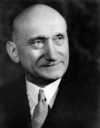



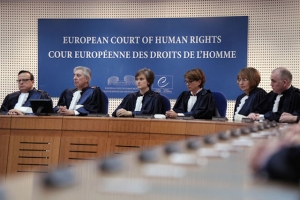
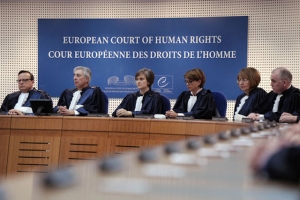

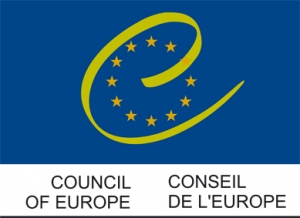
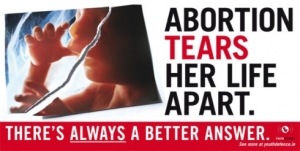

 MangoGem
MangoGem